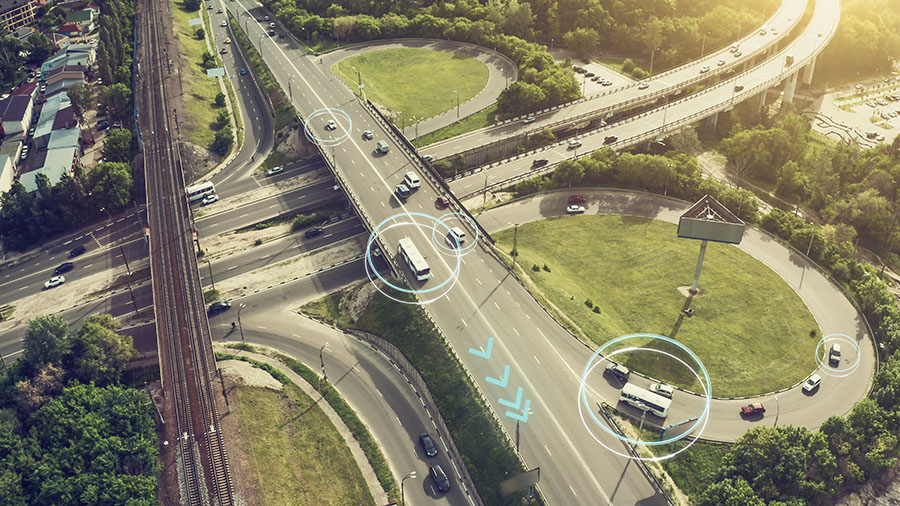UK Transport Vision 2050: business models
The updated version of the Transport Vision 2050 comes with a wide range of new references, developments, and insights. Since the original version, released in 2021, the UK has undergone an abundance of changes, from the outcomes of the Covid-19 pandemic, the cost-of-living crisis, global threats, and the new era of technology. All of these have impacted and influenced how we live our lives, and impacted how we as people, and the goods we consume, move both nationally and globally.
Transport and business models
Within the Transport Vision 2050, there is a section which focuses on business models. The development of a good business model can be crucial to its success as it can help to determine the customer and their needs, therefore identifying the optimal use case. I was fortunate enough to be responsible for updating the business model section and talking to a variety of stakeholders to adapt and develop both the supporting information for the section, alongside the roadmap.
There are high levels of uncertainty for what the future business models may look like. The needs, wants and pressures of society are continually changing, as demonstrated by the societal and economical challenges we have faced since the first release of the Transport Vision 2050. With our innate requirement for travel, these changes consequently impact our transport networks and associated systems, therefore influencing the development of different business models.
Advancements in digital, data and logistics
One of the most notable recent advances over the last few years has been within the digital sector. Artificial Intelligence (AI), the cloud, Virtual Reality (VR) and the Internet of Things (IoT), are just a few of the new terminologies which are increasing in use and becoming more commonplace in our language. These innovative digital advancements offer the opportunity for both new and improved business models to be developed, changing the ways we interact, how we travel and, in some circumstances, reducing or removing our need to travel.
Linked to these developments in the digital space is the impact of data. Many new digital technologies have generated access to an increasing amount, and a wider scope of data gathering. Data can be used both to generate income through its sale, but also to enable businesses to better tailor its products to its customer base, consequently improving revenue and retainment. Data analytics can help to optimise the performance and personalisation of a product, enabling organisations to identify optimal delivery results.
However, these advancements in the digital and data space also come with an increasing cyber threat. The need for cyber security technologies and resource can cost companies’ huge economic expense, particularly if security levels within an organisation are breached. Yet, with this risk comes opportunity for the cyber resilience market. With our networks and systems becoming increasingly connected, this generates more avenues for potential product and service development and revenue production for cyber security-based innovations.
Logistics, and the online retail sector, are other areas for development from a business model perspective. Online deliveries are thriving as customers expect fast, efficient, and convenient delivery services for the goods they purchase. The potential for growth within retail and the associated logistics sectors presents a great opportunity for new business model development. However, businesses operating in this space must ensure that this is carefully balanced with environmental credentials and sustainable perspectives.
Vehicle sharing, liveability and accessibility
It is predicted that over time, our approach to travel will become more service-based as opposed to considering each mode individually. Shared vehicles, bundled tickets and a reduction in personal car ownership will lead to changes in the services and packages offered, as well as the type of insurance which will be needed. Examples of this can already be seen in the rise of car clubs, rental bike and scooter schemes and an increase in attention on bundled Mobility as a Service (MaaS).
In addition, there is an increased focus on ‘liveability’ and the way that our transport systems and associated infrastructure make us feel. Liveability is the consideration of how nice, or suitable a place is to live. For many this may mean easy access to shops and facilities, safe and pleasant environments to move around in and an abundance of green space. With an increasing environmental focus and concerns over aspects such as carbon footprints, our built environment will change to facilitate this. Business models which embrace this notion will be able to appeal to customers from a lifestyle viewpoint.
Lastly, we must be considering aspects such as accessibility and equality when designing business models. For the estimated 16 million people in the UK living with a disability, travel can present a range of barriers. Through developing new business models which consider, or cater to, the unique characteristics of different groups and understand their lived experiences, organisations will be able to open their innovations and technologies to a wider number of people, and therefore, market. Enabling easier travel for all will bring both societal and economic gains.
Considering all of this, although there is large amount of uncertainty within business model development for transport and its interlinked systems, there is also a huge amount of possibility. The rise of digital advancements only works to enhance this, and consideration for societal preferences and individual needs will support successful business models.
– Sophie Randall, Innovation Lead, Mobility and Cities, Innovate UK
Feedback
If you would like to offer feedback to help us further shape and inform the UK Transport Vision 2050, please use our feedback form to submit your comments.
Reimagining transport: UK Transport Vision 2050
The UK Transport Vision 2050, first published in 2021, has been updated based on increased understanding, changing circumstances and feedback from over 200 partners.




